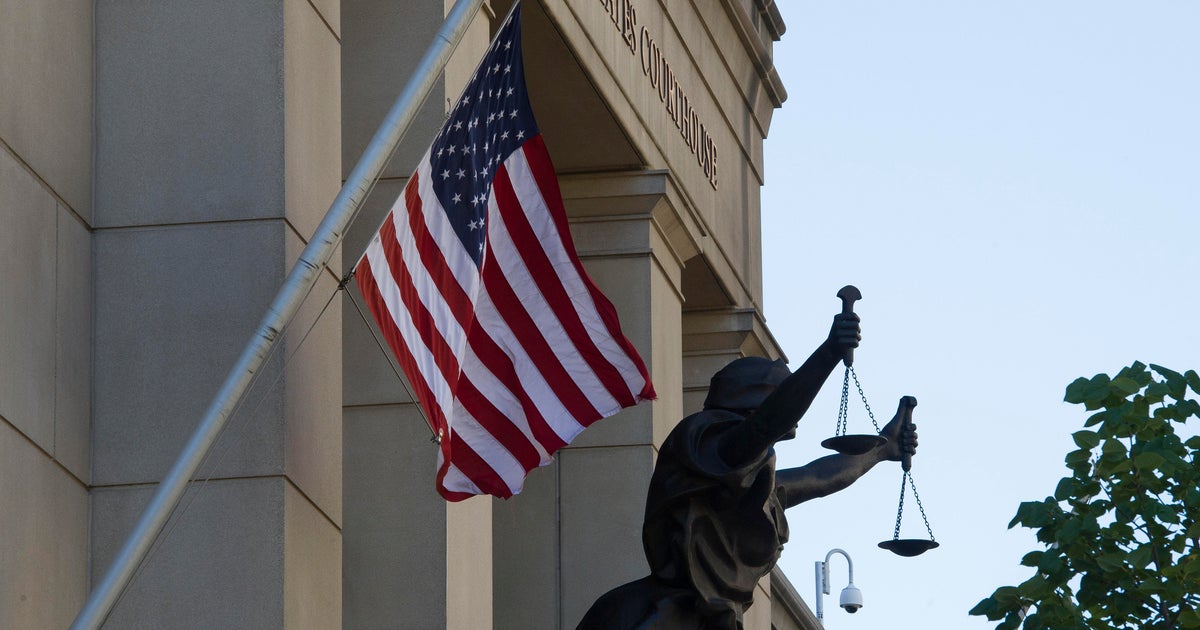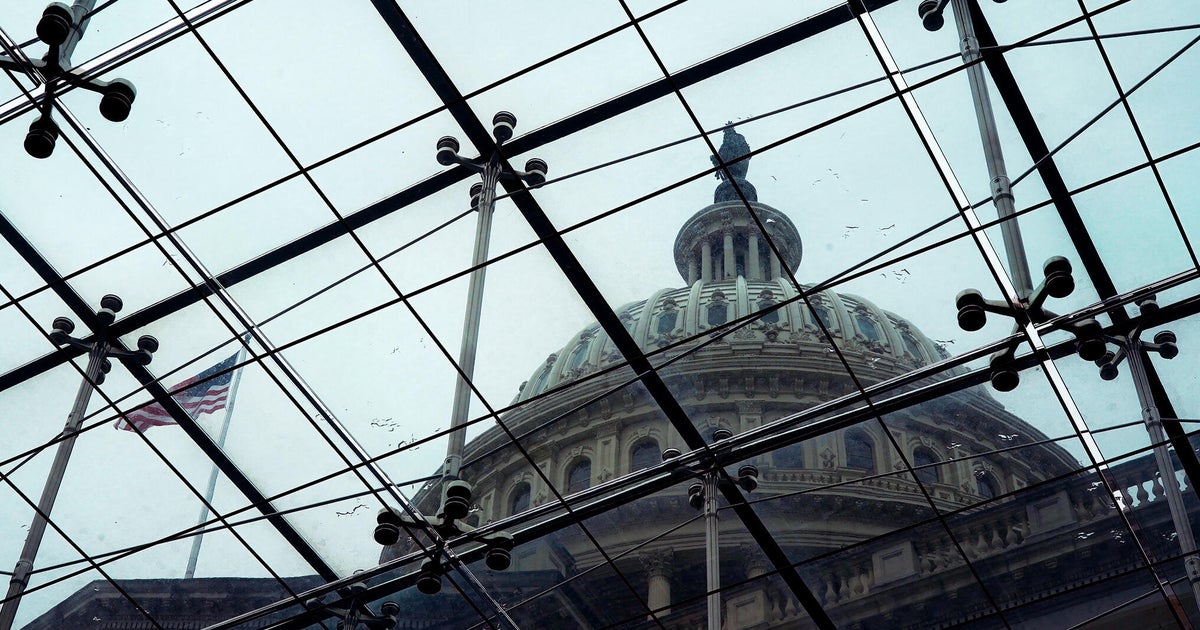Adam Schiff makes specialty hires for reopened Russia probe
Democrats on the House Intelligence Committee have wasted no time in beefing up the investigative staff dedicated to continuing the committee's work on its semi-dormant Russia probe, even as the committee's new membership is still taking shape.
The new majority has made offers to half a dozen new staffers, CBS News has learned, and is still searching for six more. Among the latest hires are an expert in corruption and illicit finance and a former prosecutor.
The committee typically does not reveal much publicly about its staff; it is withholding names and most details about potential new hires as some of them progress through a lengthy security clearance process.
"There's a lot of work yet to be done on Russia," a senior committee official told CBS News. "What we're doing is we are creating a purpose-built team that will take the point on that."
As they assume the majority, Democrats under newly appointed Chairman Adam Schiff, D-Calif., will add four members to the committee and more than double its staff, from 11 to roughly 24; Republicans will cut their staff count and, with some members having retired from Congress last year, likely keep their membership even at nine.
About seven of the Democrats' new staffers will be dedicated full-time to the committee's residual work investigating alleged connections between President Trump, his campaign associates, and Russian officials – while a handful of other staffers will be available to assist in that investigation on a "surge" basis, committee officials say.
Though Republicans on the committee declared an end to the Russia probe last spring and issued a final report finding no collusion on the part of the president's campaign, Democrats have long decried the findings as "fundamentally unserious," and vowed to keep parts of the inquiry open.
Schiff said in an interview last month that the committee had been "deluged" with résumés from candidates hoping to join its staff.
The new staff additions are intended to enhance the committee's ability to make inroads on unanswered questions in the Russia investigation without requiring it to pivot away from the "day job" of overseeing the intelligence community's 17 organizations, according to committee officials. But the final team will likely bring with it the investigative and prosecutorial specialties Schiff has long sought.
As ranking member, the California Democrat consistently lamented being hamstrung by a Republican majority which, under then-Chairman Devin Nunes, D-Calif., seemed at best incurious about certain aspects of the Trump-Russia nexus. Schiff has also been publicly wistful about the special counsel's investigative horsepower, telling an audience at the Council of Foreign Relations last February that he was "deeply jealous" of the team Mueller had assembled.
"I have a phenomenal staff," he said at the time, "They're bright and they work 24/7, seven days a week and they do it with no windows."
"[B]ut they're largely analysts," Schiff continued, "they're not trained to be investigators."
The team now tasked with resuscitating the Russia investigation is not expected to start from scratch, but instead to zero in on some complex financial and legal questions whose answers have largely eluded House investigators.
"Unlike in the last Congress, when the investigation was undertaken by existing oversight staff, Chairman Schiff will now have a team better able to answer the key questions about Trump's relationship with [Russian President Vladimir] Putin and his cronies," the senior committee official said.
Schiff and some of his fellow committee Democrats have been transparent about what some of their immediate priorities will be. They include the release to the special counsel -- and subsequently to the public -- of all of the committee's Russia investigation interview transcripts; subpoenaing relevant banking and telecommunications records that Democrats have said contain information that implicates the president; and hearing – in some cases a second time – from key witnesses.
Among the witnesses in which the Democrats have expressed an interest are the president's personal lawyer, Michael Cohen, family members like Donald Trump Jr. and Jared Kushner, and other former Trump campaign officials, like George Papadopoulos and Michael Flynn, who have cooperated with the special counsel.
Democrats have also telegraphed a voracious appetite for new avenues of inquiry, including the Trump Organization's reported offer of a $50 million condo in Trump Tower Moscow to Putin and the notes taken by the interpreter present at the two leaders' one-on-one meeting last July.
While Schiff has also previously mentioned the potential for coordination between his committee and that of the Senate Intelligence Committee, whose own investigation will enter its second year later this month, aides from both indicated the change in leadership would not necessarily pave the way for collaboration, and that the two investigations will remain separate.
As these new priorities come to the fore, Schiff has also vowed restore both comity and sobriety to the committee – though there are no indications that he and Nunes, who will now serve as ranking member, have reestablished lines of communication, let alone decided on an amicable path forward.
In fact, Republicans on the committee are generally skeptical that the majority, under Schiff, will make a concerted effort to resume normal oversight work as long as the Russia investigation remains a chief focus.
A Republican committee official said Democrats were adopting a posture of "Show me the man and I'll show you the crime" vis-a-vis President Trump – an apparent reference to the ruthless and manipulative tactics of the former head of the Soviet secret police under Joseph Stalin.
In a statement, the spokesman for the committee's Republican minority, Jack Langer, said, "For months, the committee's Democrats have shown that their principal priority is to launch a sprawling investigation of Trump and to try to manufacture a basis for impeachment."
"So Republicans will focus on doing the oversight of the Intelligence Community that this committee was created to do, and will be pointing out the absurdity of the Democrats' myriad conspiracy theories," Langer said.
Restructuring
The day-to-day work of oversight is also evolving with the Democrats taking the reins.
While parts of the committee's operations and structure are virtually always tweaked by the incoming majority – Nunes, as chairman, put in place a mostly agency-specific subcommittee structure, with groups dedicated to the CIA, NSA and defense intelligence in particular – under Schiff, the four existing subcommittees will also be reorganized.
Rather than keeping the subcommittees focused on specific agencies, they will be restructured around thematic challenges – or "core missions" – across the intelligence community, according to officials familiar with the committee's plans.
One subcommittee will focus on crucial and increasingly competitive technologies at the heart of the intelligence enterprise, including satellites and other space-based assets, advanced and quantum computing, and challenges like artificial intelligence and machine learning.
A second will oversee the intelligence community's counterterrorism and counterproliferation efforts – including those in hotspots like North Korea and Iran – as well as counterintelligence. The third will look at the overall management of the intelligence community, with an emphasis on human capital management, information technology, and security clearance reform. The last will focus on intelligence community's support to the American military and the Pentagon.
"[T]hese subcommittees will be empowered to devise and execute their own oversight plans through hearings, deep dives, and travel to [intelligence community] elements at home and abroad," Schiff said in a statement provided to CBS News.
"It sounds to me like a sensible division of labor over four subcommittees and I don't think the agencies will feel like they're overlooked," said Michael Allen, a former majority staff director under Republican chairman Mike Rogers, R-Mich.
The technologies subcommittee in particular "makes a lot of sense," said Allen, who also served on former president George W. Bush's national security council. "That topic – especially as China continues stealing critical technology – remains a major concern in the national security community."
Mark Lowenthal, who also served as staff director to former Republican chairman Larry Combest, agreed. "This array is more likely to lead to effective oversight," he said. "While there are agency-specific problems, a lot of issues that you worry about – whether you are managing or overseeing – transcend the intelligence agencies, across the board."
Lowenthal, who also served in policy and management roles in the executive branch as vice chairman of the National Intelligence Council and as an assistant director of central intelligence, said the new structure will likely provide the committee with more visibility into the intelligence community's most urgent challenges.
"One of the things people always complain about in the intelligence community is 'stovepipes,'" he said. "Well, if you set up committees on an agency basis you replicate those stovepipes."
"This seems a much better way to get a sense of what's going on and where Congress can help figure out what needs doing," Lowenthal said.
The committee, once it is fully constituted, will still need to vote in order to finalize the new structure and assign new subcommittee chairs.
From there, other business items, both regular and extraordinary, and ranging from the release of dozens of witness transcripts, to the issuance of subpoenas, to standard open hearings, are expected to be put in motion later this month or in early February.
It is unclear if Nunes, who for a time stepped away from the committee's Russia investigation amid an ethics investigation, will participate in the committee's witness interviews, once they recommence.




